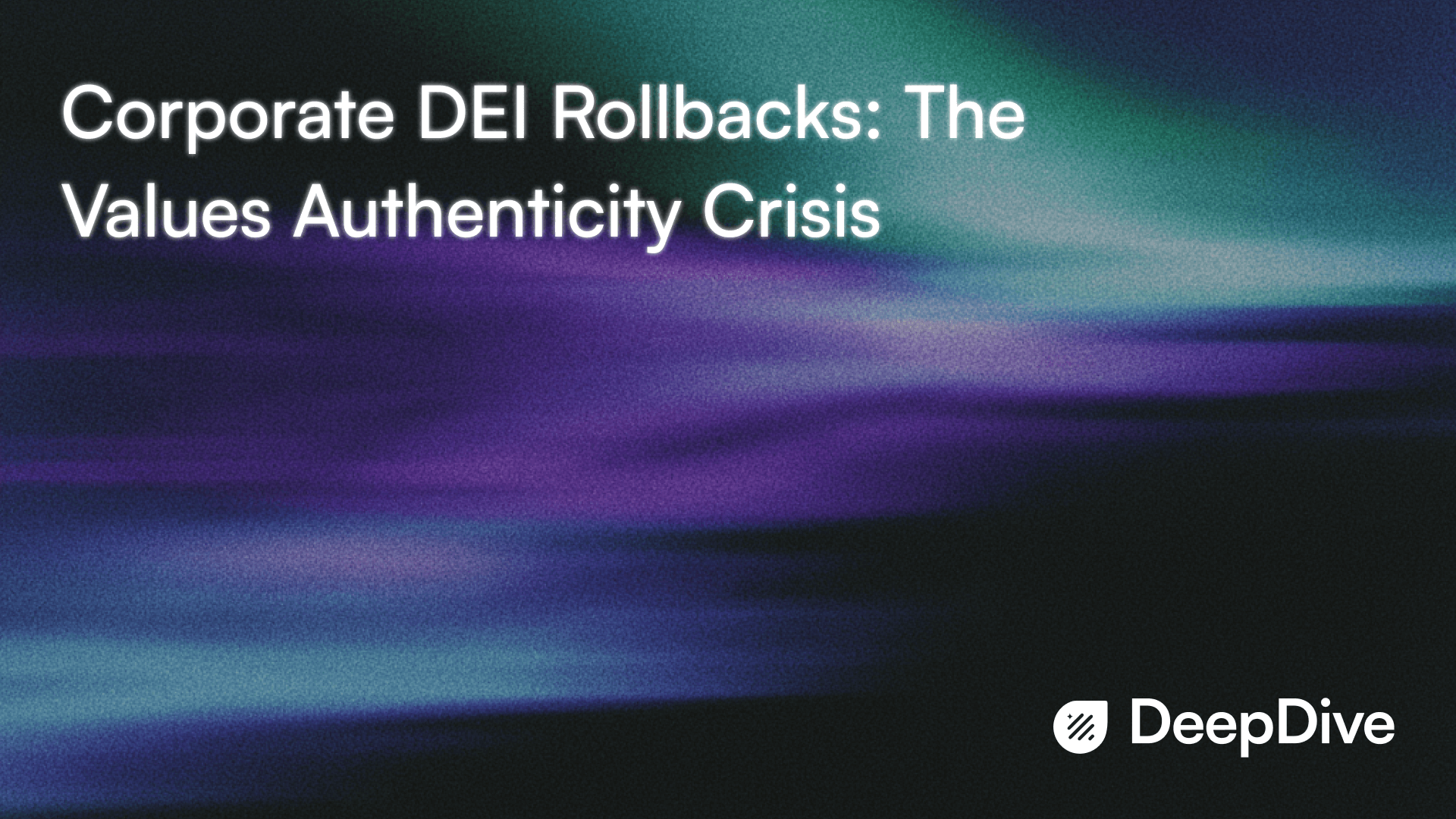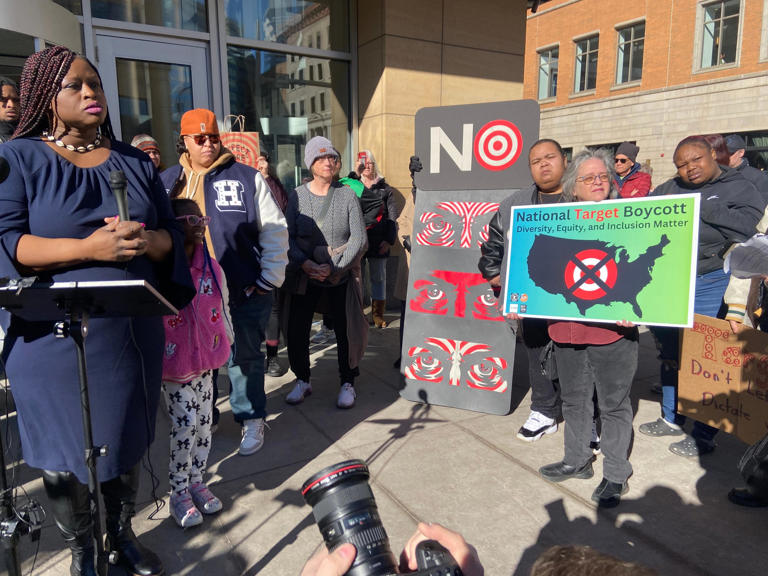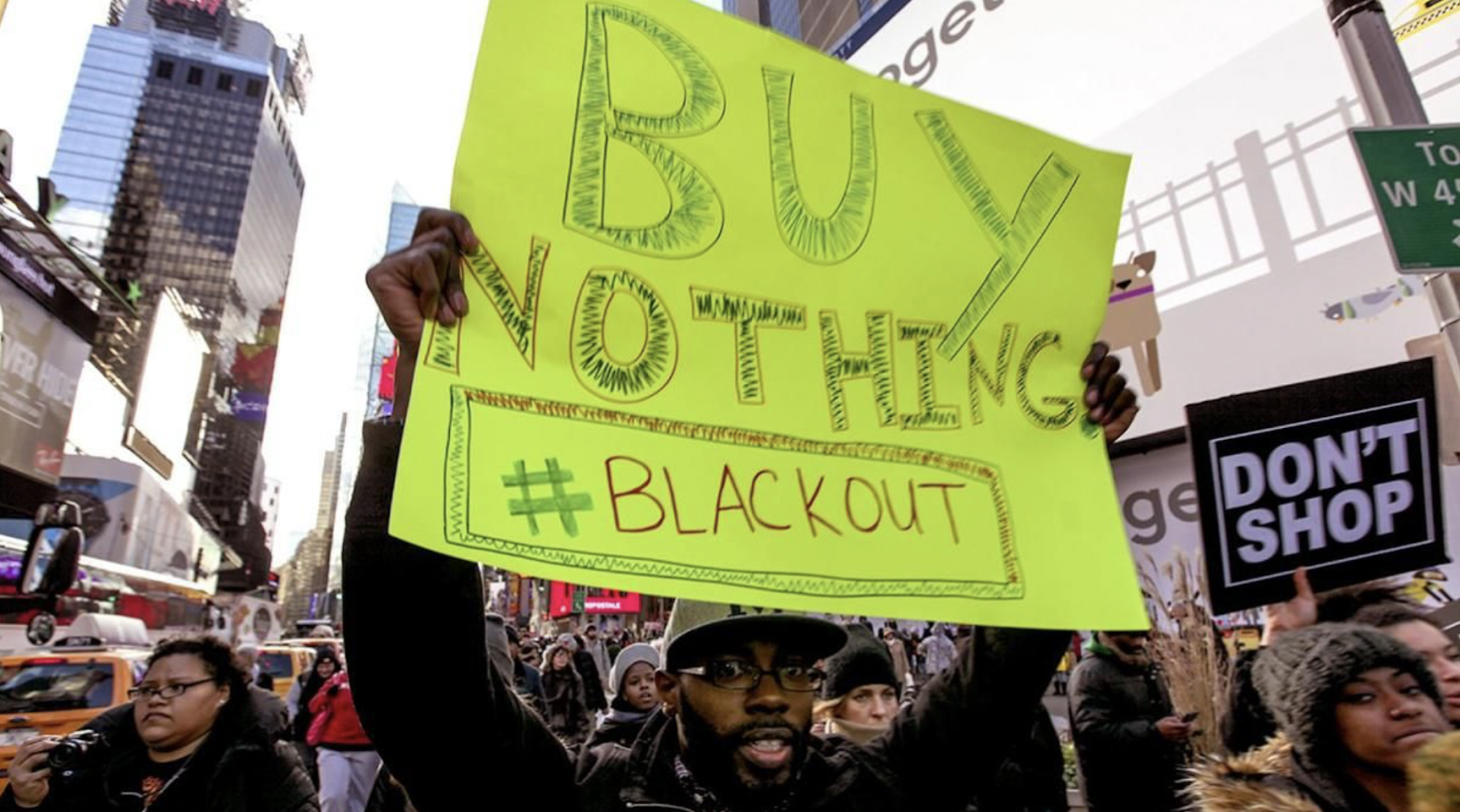We are excited to announce our $2M seed round led by Joa Capital.
Read Now

October 23, 2025
Fabiana Binte Mesbah
In 2025, the corporate landscape witnessed a quiet yet seismic shift. Across industries—from Big Tech to fast food to automotive—major corporations began scaling back their workplace diversity and inclusion efforts. McDonald’s, Meta, Amazon, Google, Walmart, Ford, Harley-Davidson, Lowe’s, Toyota, and Boeing all made headlines for rolling back DEI programs.
Common changes included ending diversity hiring goals, withdrawing from the Human Rights Campaign’s Corporate Equality Index, and even renaming “Diversity” teams to the more ambiguous “Inclusion” or “Culture” groups.
It wasn’t just an operational shift—it was a cultural signal. And the public noticed.

Caption: Corporate DEI rollbacks set off long-term consequences of values reversals
Conservative activist Robby Starbuck claimed credit for the growing pressure campaign, while progressive advocacy groups fired back with organized boycotts. A new grassroots collective, People’s Union USA, began coordinating rotating monthly boycotts targeting one company at a time.
The results? A corporate identity crisis in full view of employees, customers, and investors—each watching how brands responded to the social and political tides.
Values have become one of the most visible currencies in modern business. Brands spent years building reputations on social commitments—gender equity, racial inclusion, LGBTQ+ advocacy—only to pull back when political winds shifted.
That reversal came at a price.
Mentions of “DEI” on corporate earnings calls have plummeted 82% since 2021, according to an analysis by DealershipGuy News. A separate report from Bloomberg Law found that the use of the DEI acronym in S&P 100 filings dropped 68% year-over-year between 2024 and 2025.
Even beyond communications, large U.S. corporations have reduced or removed DEI-related metrics from public disclosures. These figures show that companies aren’t just scaling back programs—they’re intentionally quieting down in an effort to avoid scrutiny.
But the workforce has noticed. A nationwide survey by MyPerfectResume found that 84% of employees want DEI initiatives to expand, not contract, and 69% fear the rollback trend could trigger industry-wide cutbacks. Meanwhile, 65% said reducing DEI efforts would significantly harm retention and morale—a warning many leaders seem to be overlooking.
In January 2025, mere days after the presidential inauguration, Target announced it was ending its three-year DEI goals, halting internal diversity surveys, and discontinuing its Racial Equity Action initiatives.

Caption: Backlash towards Target’s DEI rollbacks
The response was immediate and fierce. Pastor Jamal Bryant led a 40-day boycott that rallied more than 200,000 participants nationwide. Within months, foot traffic fell for 25 out of 27 consecutive weeks, and sales dropped 3%. By late summer, Target’s market value had shrunk by $12.4 billion, and longtime CEO Brian Cornell stepped down in August.
But the backlash wasn’t just external. The founders’ own daughters publicly condemned the decision. A class-action lawsuit emerged, and major asset managers questioned the strategic rationale behind the rollback.
Caught between conservative critics and progressive boycotts, Target effectively lost both sides.
Many companies attempted a middle path—renaming their DEI departments to sound less politically charged while quietly dissolving specific commitments.
But online audiences are fluent in corporate double-speak. Social media conversations showed spikes in keywords like “performative,” “hypocritical,” and “fake inclusion” every time a company announced rebranding instead of genuine reform.
The takeaway? Reversing or diluting workplace diversity initiatives doesn’t go unnoticed—it creates what analysts call an “authenticity gap.” And in a digital economy where consumer sentiment can shape market performance, authenticity gaps can cost billions.
For marketers and executives, the lesson is clear: attempting neutrality on polarizing values can appear inauthentic—and authenticity drives trust.

Caption: The DEI rollbacks triggered organized boycotts
This ongoing DEI rollback wave offers critical insights into how brands navigate values in a hyper-visible era:
The corporate DEI rollback trend exposes a deeper truth: modern consumers don’t expect perfection—they expect principled consistency. As workplace diversity becomes entangled in politics, the brands that will thrive are those that treat inclusion not as an initiative, but as identity.
In the end, this isn’t just a DEI story—it’s a story about authenticity as strategy. Companies that understand and measure social sentiment, anticipate backlash cycles, and act with integrity will emerge stronger from this crisis of values.
For marketers and executives, the takeaway is simple: the real test of a brand’s strength isn’t how loudly it declares its values—but how consistently it lives them, even when the spotlight turns harsh.
Discover How Audience Intelligence can help your brand grow